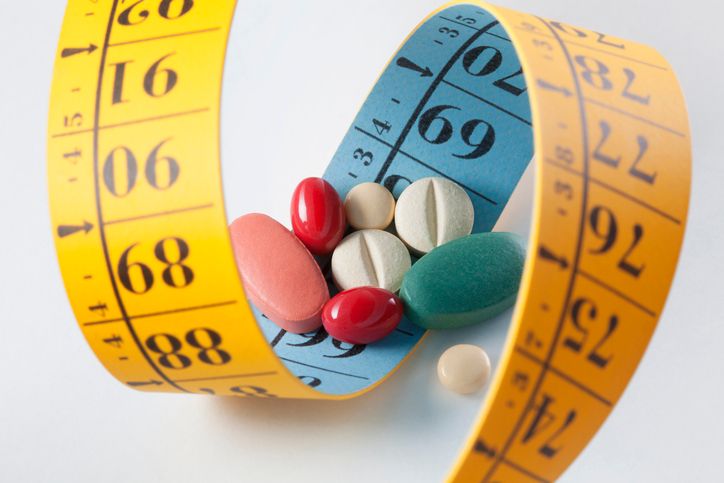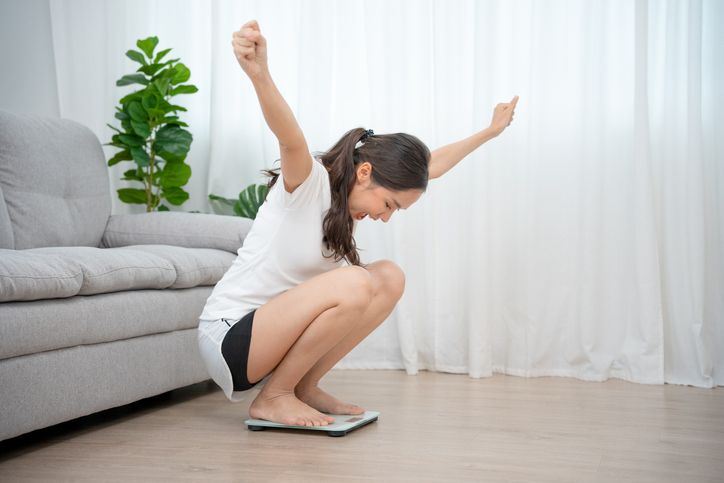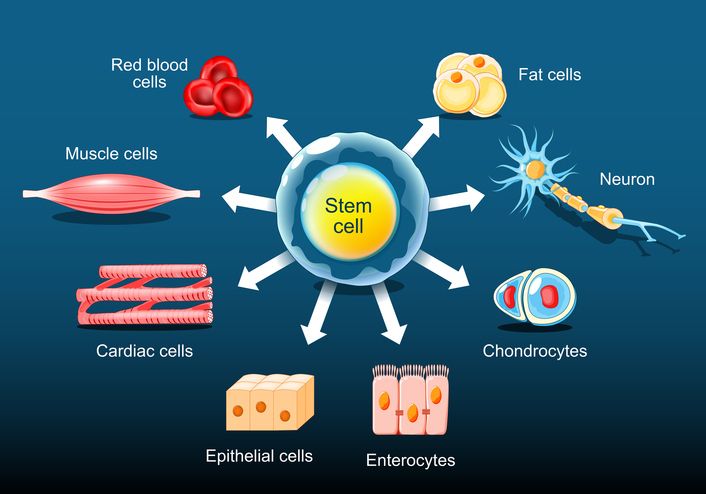

Book Now to Experience
S6 Body Sculpting Treatment
1 Minute Self-Registration
Date should not be before minimal date
Author: Leila Tan|Updated: 23 July 2024
If you are looking for a quick and easy way to lose weight, you might be tempted by the advertisements of weight loss pills. These pills claim to help you shed pounds without diet or exercise, by suppressing your appetite, boosting your metabolism, or blocking fat absorption. But are they really safe and effective?

1
Why You Should Not Trust Weight Loss Drug

People who want to lose weight may be attracted by dietary supplements that claim to help them reach their goals. But some of these supplements may have ingredients that are bad for you or don't do anything that aren't listed on the box. A report from Harvard Health says that the FDA has found dangerous prescription drugs, controlled substances, or parts that haven't been tried or studied in some weight loss supplements. These ingredients may cause major side effects and may interact with other medicines, and some of them can cause serious side effects, such as high blood pressure, heart problems, liver damage, kidney failure, or even death. In the past, there are several harmful chemicals that have been found in weight loss supplements, includes:
Sibutramine
Sibutramine is a prescription drug that was taken off the market in 2010 because it was linked to a higher chance of having a heart attack or stroke.
Phenolphthalein
Phenolphthalein is a laxative that may cause cancer, so the FDA banned it in 1999.
Fluoxetine
Fluoxetine is a drug that can make you think about killing yourself, have seizures, and bleed in strange ways.
Furosemide
Furosemide is a diuretic that can lead to dehydration, an unbalance in your electrolytes, and damage to your kidneys. Also, we have Bumetanide, which is another diuretic that can work like furosemide.
Phenylpropanolamine
Phenylpropanolamine is a stimulant that was taken off the market in 2000 because it can cause high blood pressure, stroke, and an uneven heartbeat.
These are just a few examples of bad things that could be in weight loss pills. The safest and most effective way to lose weight is to eat a balanced diet and work out daily. Moreover, weight loss pills are not a long-term solution for weight management. They do not address the underlying causes of obesity, such as poor eating habits, lack of physical activity, or emotional issues. They may also interfere with your body's natural signals of hunger and satiety, making you more prone to overeating or bingeing. And once you stop taking them, you are likely to regain the weight you lost, or even more.


2
If You Must Take Weight Loss Drugs, Find One That Is Approved By HSA

Semaglutide (Wegovy) is one of the weight loss pills that are okayed by the Singapore HSA. Yahoo Southeast Asia says that Wegovy is a drug that has become popular on social media because it helps people lose weight. HSA told Yahoo Southeast Asia that the drug can be taken by people who are overweight or obese and have at least one weight-related comorbidity, such as high blood pressure, Type-2 diabetes, or high cholesterol.
It acts like a hormone called GLP-1, which controls hunger and blood sugar. It works by making you feel less hungry and more full, which makes you eat fewer calories and lose weight. Over 68 weeks, people who took Wegovy lost an average of 15% of their body weight, while those who took a placebo only lost 2.4%. But Wegovy isn't a magic pill that will solve all your weight issues. It can cause things like sickness, diarrhoea, vomiting, and the inability to go to the toilet. It also needs to be prescribed by a doctor and blood pressure, heart rate, and kidney function need to be checked regularly
Unfortunately, Wegovy is not suitable for people who have had thyroid cancer, pancreatitis, or diabetic retinopathy in the past or have a family history of these diseases. Before taking weight loss pills, it's important to talk to your doctor and live a healthy lifestyle, which includes eating a balanced diet and working out regularly.

3
Forget About Weight Loss Drug: Here's The Recommended Ways to Stop Weight Gain

Many people want to lose weight and cut down on their body fat, but they may not know the best way to do it. Some people might turn to weight-loss drugs, which can have dangerous side effects and might not work in the long run. Here, we'll tell you why you shouldn't use weight loss pills and why you should instead focus on natural, long-term ways to lose body fat and control your weight.
Move your body!
Increasing your physical exercise, especially strength training, is one of the best ways to burn calories and reap health benefits. Strength training is a type of exercise that makes your muscles contract against force, like weights, bands, or your own body weight.
Strength training can help you gain muscle mass, which speeds up your metabolism and makes you burn more calories throughout the day. It can also improve the density of your bones, your stance, your balance, and your health as a whole.
Keep your food intake balance
Your food is also an important part of getting rid of excess weight. You should eat a balanced diet that gives you enough protein, fibre, healthy fats, vitamins, minerals, and antioxidants to support your health and exercise goals.
Protein is especially important for you to obtain a healthy body fat percentage because it makes you feel full for longer, keeps your muscle strength, and makes you burn more calories. Lean meats, eggs, fish, cheese, beans, nuts, and seeds are all good sources of protein.
Practise healthy eating
You should also avoid or eat less foods that are high in calories, sugar, refined carbs, saturated fats, and trans fats. These foods can raise your blood sugar, make you hungry, and make your body store fat.
Cakes, cookies, candy, drinks, white bread, pasta, chips, fried foods, and processed meats are all examples of these kinds of foods.
Get enough sleep
This is worth mentioning because Singaporeans often have issues getting enough sleep every night. Sleep is important for keeping your energy up, balancing your hormones, and fixing your muscles.
If you don't get enough sleep, your hunger hormones can get out of whack. This can make you want to eat more than you need. It can also make you less interested in and good at exercise. Try to get at least seven hours of good sleep every night and stay away from screens, caffeine, booze, and nicotine before bed.
Get your weight management done with weight loss treatment
As technology gets more advanced nowadays, there are multiple ways to let you enjoy a healthy weight without forcing yourself to eat healthy food in a very strict manner. S6 Body Treatment is a non-invasive and non-surgical body contouring treatment that uses a low-energy bio-laser to dissolve fatty layers and help you achieve your dream body outline.
The low-energy bio-laser targets and removes fat from under the skin in specific places, eliminating the need for invasive surgery. When the laser's heat kills a fat cell, it will release fatty acids that the lymphatic system can use. At the same time, the area under treatment is massaged with vacuum suction technology, which has been shown to enhance metabolic rate. The bio-laser technology not only reduces skin laxity but also increases collagen formation. This treatment focuses on the belly, waist, biceps, buttocks, thighs, and calves, the seven areas of the body where fat is notoriously hardest to lose.


4
I've Successfully Slimmed Down Without Pills! What's Next?

If you are someone that managed to achieve healthy weight without relying on any weight loss drug, you deserve a medal. However, the only thing that comes to mind when you consider weight loss steps like restricting food intake or more exercise is the agony you endured, and the problem after you reduce your weight does not end there.
When people lose weight, their skin often gets loose and saggy. It can happen anywhere on the body, but it's most obvious on the face, neck, arms, and stomach. When the skin loses its elasticity and stiffness, which can happen with age, weight loss, pregnancy, or other things, this is called sagging skin. The skin gets loose and stretched, and it may hang down or get wrinkles.
The loss of collagen and elastin, two proteins that give the skin its structure and elasticity, is the main reason for sagging skin after weight loss. Collagen and elastin are made in the middle layer of skin, called the dermis. When a person gets fatter, their skin gets bigger to fit the extra fat. This can hurt the collagen and elastin fibres in the dermis, making them weaker and less bendable. When a person loses weight, their skin may not be able to go back to its normal size and shape. This can cause their skin to sag.
Several things can affect how much sagging skin a person has after losing weight, like:
* How much weight a person loses: The more weight a person loses, the more likely it is that their skin will get loose.
* How fast you lose weight: If you lose weight too quickly, your skin won't have time to adjust to the new shape and size of your body.
* Age: As people get older, their skin naturally gets thinner and less pliable, which makes it more likely to sag.
* An individual's genes: Some people's skin is more flexible than other people's, which can affect how well their skin adjusts when they lose weight.
* The way the person lives: Smoking, being in the sun, not eating well, not drinking enough water, and worry can all damage the skin and make it less flexible.
When a person loses weight, their skin can sag, which can hurt their self-esteem and quality of life. It can also hurt your body in ways like rubbing, irritation, illness, or making it hard to move around. Some people choose to have plastic surgery to get rid of extra skin and make themselves look better.
Many people wonder if weight loss pills can make their skin tighter and lighter after they lose weight. The answer is not so easy, because different pills may have different effects on the skin. Some weight loss pills may have chemicals like vitamin C, zinc, and biotin that can make skin more elastic, keep it from drying out, and make more collagen. These ingredients might help make your skin look less saggy and wrinkled after you lose weight. But some weight loss pills, like those with caffeine, diuretics, and stimulants, may have ingredients that are bad for the face. These chemicals may cause dehydration, inflammation, and oxidative stress, which can damage skin cells and make the skin look dull and old. So, no matter how attractive or intriguing a weight loss pill sounds, it's important to talk to a doctor before taking weight loss pills and to eat well and take care of your skin to keep your skin healthy after you lose excess weight.

Book Now to Experience
S6 Body Sculpting Treatment
1 Minute Self-Registration
Date should not be before minimal date

5
Conclusion

If you monitor your calorie intake and plan your weight management well, you won't need any pills to help you lose weight. Instead, you'll lose fat in a safe and natural way. You will also feel better about your health and well-being in general. Remember that losing weight isn't a quick fix, but a long-term change in living that takes time and consistency.
FAQ
1.What are drugs that help you lose weight, and how do they work?
Weight loss drugs are medicines that help people lose weight by reducing their hunger, speeding up their metabolism, or stopping their bodies from absorbing fat. Phentermine, orlistat, liraglutide, and naltrexone-bupropion are all examples of weight loss drugs. Some people may not be able to take weight loss drugs, and they may have side effects or combine with other medicines. They should only be used with the help of a doctor and in addition to a healthy diet and regular exercise.
2.What is a low-fat diet, and what are the pros and cons of it?
A low-fat diet is a way of eating in which fat makes up less than 30% of the total calories. By lowering cholesterol, triglycerides, and blood pressure, a low-fat diet may lower the chance of heart disease, diabetes, and some cancers. But a low-fat diet may also have some drawbacks, like not giving enough of the vitamins, minerals, and important fatty acids that are found in fat-rich foods. A low-fat diet may also be hard to stick to and cause you to eat too many carbs or processed foods.
3.What is the body mass index?
Body mass index (BMI) is a way for grown men and women to measure their body fat based on their height and weight. To figure it out, divide the person's weight in kilogrammes by the square of their height in metres. For example, a person with a BMI of 22.9 has a weight of 70 kg and a height of 1.75 m. Normal is a BMI between 18.5 and 24.9. Overweight is a BMI between 25 and 29.9, and obese is a BMI of 30 or more.
4.What are the main reasons people gain weight, and how can it be stopped?
Over time, people gain weight when they eat more calories than their bodies burn. The main reasons people gain weight are eating too much, especially high-calorie foods and drinks, not being active enough, having a genetic tendency, taking certain medicines, or having a medical condition that changes metabolism or appetite. Creating a calorie balance, which means burning more calories than you eat, can stop or turn around weight gain. This can be done by eating less, picking healthier foods, drinking more water, being more active, and getting enough sleep.
5.What is the daily calorie limit, and how can we calculate it?
The amount of calories a person needs to stay at their current weight is their daily calorie limit. It depends on your age, gender, height, weight, amount of activity, and health goals. Use an online tool that takes these things into account to get an idea of how many calories you should eat each day. Another way is to use a simple formula: multiply the person's weight in pounds by 10 for women or 11 for men, then add or subtract 20% based on whether they want to lose or gain weight. For example, if a woman weighs 150 pounds and wants to lose weight, her daily calorie limit is (150 x 10) - 20% = 1200 calories.

Book Now to Experience
S6 Body Sculpting Treatment
1 Minute Self-Registration
Date should not be before minimal date
Recommended Articles
COPYRIGHT© NEW BEAUTY MANAGEMENT LIMITED 2026. ALL RIGHT RESERVED.




